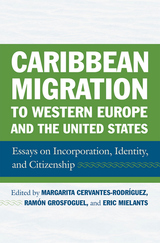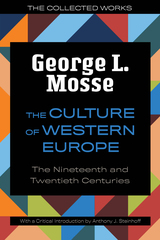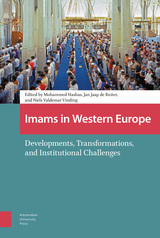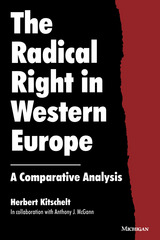
In the past decade remarkable changes have taken place in the relations between big business and government in Western Europe. Large corporations have always been intimately linked to their governments—sometimes carrying out national policies, frequently influencing those policies. Recently, however, more and more national enterprises have become multinational enterprises whose aims diverge increasingly from those of the states in which they originated. In addition, the growth of the European Economic Community has outdated customary ways of doing business for large corporations while creating new opportunities for them.
A number of significant insights and interpretations result from this timely book. The interests of the big firms of Western Europe are becoming increasingly worldwide and less concerned with Europe; inter-European collaboration among them has been largely disappointing in furthering European goals; emphasis on creativity and innovation in big business has given way to the diversion of financial resources to declining industries; and lip service to promoting transnational collaboration notwithstanding, governments have preferred to back national standard bearers in key industries. No less important, the political role of large economic groups has been enhanced and that of parliament weakened or altogether circumvented.

Caribbean Migration to Western Europe and the United States features a diverse group of scholars from across academic disciplines studying the transnational paths of Caribbean migration. How has the colonial path of the Caribbean influenced migration with regard to power relations, ethnic identities and transnational processes?
Through a series of case studies, the contributors to this volume examine the experiences of Caribbean immigrants to Spain, France, the United Kingdom and the Netherlands as well as the United States. They show the demographic, socioeconomic, political and cultural impact migrants have, as well as their role in the development of transnational social fields. Caribbean Migration to Western Europe and the United States also examines how contrasting discourses of democracy and racism, xenophobia and globalization shape issues pertaining to citizenship and identity.
Contributors: Elizabeth Aranda, Mary Chamberlain, Michel Giraud, Lisa Maya Knauer, John R. Logan, Monique Milia-Marie-Luce, Laura Oso Casas, Livio Sansone, Nina Glick Schiller,Charles (Wenquan) Zhang and the editors.

Now in this thirty-fifth anniversary edition with a new foreword by leading queer and religious studies scholar Mark D. Jordan, Christianity, Social Tolerance, and Homosexuality is still fiercely relevant. This landmark book helped form the disciplines of gay and gender studies, and it continues to illuminate the origins and operations of intolerance as a social force.

John Boswell's National Book Award-winning study of the history of attitudes toward homosexuality in the early Christian West was a groundbreaking work that challenged preconceptions about the Church's past relationship to its gay members—among them priests, bishops, and even saints—when it was first published twenty-five years ago. The historical breadth of Boswell's research (from the Greeks to Aquinas) and the variety of sources consulted make this one of the most extensive treatments of any single aspect of Western social history. Christianity, Social Tolerance, and Homosexuality, still fiercely relevant today, helped form the disciplines of gay and gender studies, and it continues to illuminate the origins and operations of intolerance as a social force.

Over the last two decades, right-wing populist parties in Western Europe have gained sizable vote shares and power, much to the fascination and consternation of political observers. Meshing traditionalism and communitarian ideals, right-wing populist parties have come to represent a polar normative ideal to the New Left in Western Europe. In his dynamic study Cleavage Politics and the Populist Right, Simon Bornschier applies a cultural as well as political dimension to analyze the parties of both the right and left in six countries. He develops a theory that integrates the role of political conflict around both established cleavages and party strategies regarding new divisions to explain the varying fortunes of the populist right.


Early Medieval Jewish Policy in Western Europe was first published in 1977. Minnesota Archive Editions uses digital technology to make long-unavailable books once again accessible, and are published unaltered from the original University of Minnesota Press editions.
This is the first study of early medieval Jewish policy in the West which examines the nature of this policy from the perspective and aims of its formulators. As the author points out, most specialists in Jewish history have been dominated by what the historian Salo Baron has called the "lachrymose conception,' a view which emphasized persecution and suffering as a fundamental theme of Jewish history. Professor Bachrach challenges this view and attacks what he calls the myth of Christian church domination of the early medieval world.




As long as far-right parties—known chiefly for their vehement opposition to immigration—have competed in contemporary Western Europe, many have worried about these parties’ acceptability to democratic voters and mainstream parties. Yet, rather than treating the far right as pariahs, major mainstream-right parties have included the far right in 15 governing coalitions from 1994 to 2017. Parties do not care equally about all issues at any given time, and Kimberly Twist demonstrates that far-right parties will agree to support the mainstream right’s goals more readily than many other parties, making them appealing partners.
Partnering with Extremists builds on existing work on coalition formation and party goals to propose a theory of coalition formation that works across countries and over time. The evidence comes from 19 case studies of coalition formation in Austria and the Netherlands, countries where far-right parties have been excluded when they could have been included and included when the mainstream right had other options. The argument is then extended to countries where coalitions are less common, France and the United Kingdom, and to cases of mainstream-right adoption of far-right themes. Twist incorporates both office and policy considerations in her argument and reimagines “policy” to be a two-dimensional factor; it matters not just where parties are located on an issue but how firmly they hold those positions.

The rise of new political competitors on the radical right is a central feature of many contemporary European party systems. The first study of its kind based on a wide array of comparative survey data, The Radical Right in Western Europe: A Comparative Analysis provides a unifying framework to explain why rightist parties are electorally powerful in some countries but not in others. The book argues that changes in social structure and the economy do not by themselves adequately explain the success of extremist parties. Instead we must look to the competitive struggles among parties, their internal organizational patterns, and their long-term ideological traditions to understand the principles governing their success.
Radical right authoritarian parties tend to emerge when moderate parties converge toward the median voter. But the success of these parties depends on the strategy employed by the right-wing political actors. Herbert Kitschelt's in-depth analysis, based on the experiences of rightist parties in Austria, Denmark, France, Germany, Italy, Norway, and Britain, reveals that the broadest appeal is enjoyed by parties that couple a fierce commitment to free markets with authoritarian, ethnocentric--or even racist--messages. The author also shows how a country's particular political constituency or its intellectual and organizational legacies may allow right-wing parties to diverge from these norms and still find electoral success. The book concludes by exploring the interaction between the development of the welfare state, cultural pluralization through immigrants, and the growth of the extreme right.
Herbert Kitschelt is Professor of Political Science at both Duke University and Humboldt University, Berlin. Anthony McGann is a Ph.D. candidate in political science at Duke University.


The collection begins with a review of the historical development of housing segregation in these countries, describing current housing conditions, concentration of housing in each country’s leading cities, minority populations and the housing they occupy—specifically public, nonprofit, and owner-occupied dwellings. When focusing on the United States, the contributors assess housing segregation, antisegregation measures, and institutional racism toward blacks in the Midwest and South, and toward Mexican-Americans throughout American cities. Chapters dealing with Western Europe include housing segregation of South Asian and West Indian immigrants in Britain, immigrants in Sweden, Turkish, and Yugoslav “guest workers” in West Germany, and Algerian and other Arab groups in France. The book concludes with discussions of public housing policies; suburban desegregation, resegregation, and integration maintenance programs; specific integration stabilization programs; and desegregation efforts in one specific place.
Contributors. Elizabeth Huttman, Michal Arend, Cihan Arin, Maurice Blanc, Wim Blauw, Ger Mik, Clyde McDaniels, Jürgen Friedrichs, Hannes Alpheis, John M. Goering, Len Gordon, Albert Mayer, Rosemary Helper, Barry V. Johnston, Terry Jones, Valerie Karn, Göran Lindberg, Anna Lisa Lindén, Deborah Phillips, Dennis Keating, Juliet Saltman, Alan Murie
READERS
Browse our collection.
PUBLISHERS
See BiblioVault's publisher services.
STUDENT SERVICES
Files for college accessibility offices.
UChicago Accessibility Resources
home | accessibility | search | about | contact us
BiblioVault ® 2001 - 2024
The University of Chicago Press









